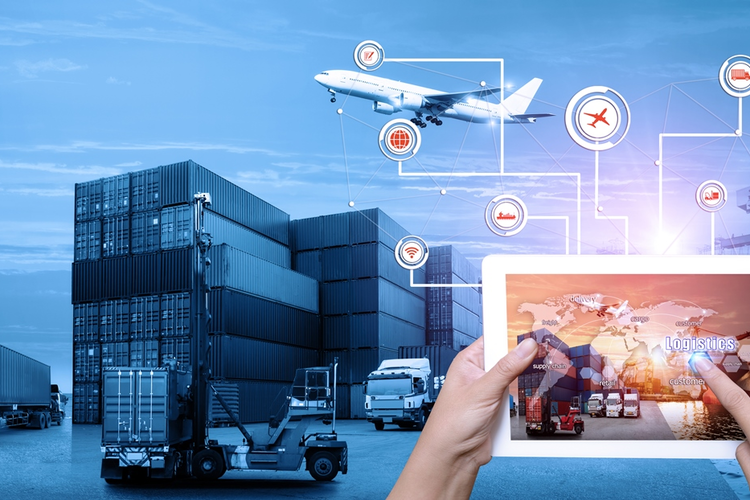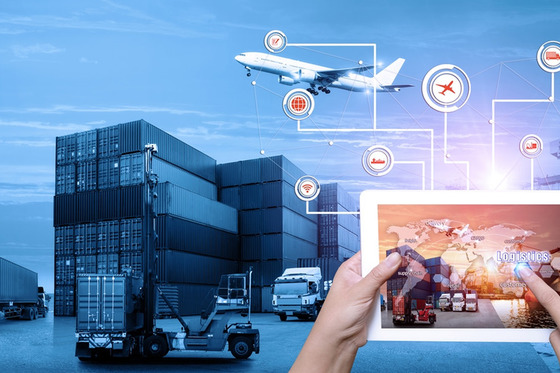Welcome to Thomas Insights — every day, we publish the latest news and analysis to keep our readers up to date on what’s happening in industry. Sign up here to get the day’s top stories delivered straight to your inbox.

Modern supply chains are increasingly recognized as a source of competitive advantage for many organizations, especially when their resilience is tested in times of crisis and disruption. Operational efficiency, technological innovation, and sustainability all contribute to making a best-in-class supply chain.
Criteria for inclusion in this list include:
- demonstrating supply chain strength and agility during the COVID-19 pandemic
- purpose-driven organizations with genuine transparency
- flexibility to reinvent supply chain models to remain competitive
- early adopters of digital technologies.
Apple has topped Gartner’s Supply Chain Top 25 list for eight years now. CEO Tim Cook has focused on sustainability, strengthening relationships with strategic suppliers, and streamlining inventory management by cutting down on warehousing to limit overstocking. Notably, Tim Cook was a CPO before becoming Apple’s CEO.
Apple purchases components and materials from all over the world before sending them to China for assembly. From China, products are shipped directly to customers. Despite its reputation for an “unbreakable” supply chain, Apple has reportedly suffered some setbacks to the iPhone 12 release due to the COVID-19 pandemic.
Amazon has reinvented eCommerce supply-chain management. The company’s focus on high responsiveness combined with warehouse automation and robotics allowed it to transform the industry with one-day delivery, and even offers two-hour delivery with Prime Now.
Turning away from outsourcing, Amazon is increasingly pulling logistics in-house while building massive fulfillment centers. In September 2019 Amazon purchased 100,000 electric delivery vans as part of its Climate Pledge to deliver net-zero carbon by 2030, and in 2020 the company took advantage of depressed prices during the coronavirus pandemic to expand its air fleet. In the future, customers can expect drone-based deliveries with Amazon Prime Air.
McDonald’s caters to nearly 70 million customers daily in 37,000 restaurants across 100 countries. To do so, it orchestrates a huge network of suppliers, franchise owners, and service providers. The company’s “win-win” strategy is based around the notion of mutual positive outcomes for employees, franchisees, and their suppliers.
The fast-food chain uses vertical integration — such as processing its own meat and growing its own potatoes — to increase supply chain efficiency and reduce costs. Today, McDonald’s is prioritizing environmental sustainability, starting with its packaging.
Walmart is known for implementing cutting-edge supply chain technologies and creating unique pathways to efficiency. The retailer’s supply chain management strategies are often studied by other companies to emulate Walmart’s success. Walmart has shifted recently to a “ship from store” approach where customer orders are picked from stores rather than from distribution centers. With 90% of Americans living within 10 miles of a Walmart, this has enabled fast and low-cost delivery of online orders during the eCommerce boom.
Johnson & Johnson’s strategy to keep the supply chain running smoothly during the 2020 pandemic capitalized on a diverse pool of suppliers to meet demand from one billion customers and patients, demonstrating true supply chain resilience. The company has transformed its supply chain to ensure end-to-end traceability with IoT sensors, cloud computing, and advanced AI-driven analytics.
L’Oreal’s supply chain scored a 10.0 on Gartner’s ESG Component Score, which indexes third-party environmental, social, and governance measures of commitment, transparency, and performance. L’Oreal has 150 distribution centers, delivering more than 7 billion products per year to 500,000 locations around the world. L’Oreal attributes its success to its customer-centricity and sustainability focus.
Inditex is one of the world’s largest fashion companies and incorporates famous brands including Zara. Through its “Right to Wear” initiative, the company has taken a leading role in transforming fast fashion from a notoriously wasteful industry into a sustainable model. Inditex has built an agile supply chain using AI to boost forecasting and a manufacturing strategy modeled on Just-in-Time (JIT) manufacturing.
Intel’s recent supply chain data transformation has created a $208 million “sense-and-respond” platform that simplifies supply chain and data pipelines, provides self-service analysis to enable decision-making, improves data quality, and provides real-time analytics.
In the area of corporate responsibility, Intel’s RISE strategy will create a more responsible, inclusive, and sustainable supply chain enabled by technology.
PepsiCo, creator of famous snack and beverage brands like Gatorade and Doritos, announced sweeping sustainability goals in 2019 that will push the company to reduce emissions and create leaner operations. PepsiCo is one of the major brands that grew during the COVID-19 pandemic, hiring an additional 6,000 workers in the U.S. and enhancing wages and benefits for its 90,000 U.S. employees. PepsiCo is increasingly focused on streamlining its supply chain with advanced data integration and inventory analytics including ordering algorithms.
Alibaba’s global eCommerce operations hit a milestone of US$1 trillion and 35% year-over-year revenue growth in 2020, an incredible feat regardless of the COVID-19-driven eCommerce boom. The company increased the scope of its in-house operations in 2019 to provide better service for its 960 million global customers.
Nestle has moved towards a more sustainable, eco-friendly, and socially conscious supply chain while still staying on track to achieve its goal to save $2 billion through more streamlined operations. Nestle’s strategic supply shift involves limiting interaction with suppliers and consolidating manufacturing operations. Nestle has also taken steps into monitoring food journeys using blockchain technology.
Consumer products giant Colgate-Palmolive uses its strong supply chain to distribute its brands to more than 200 countries and territories around the world. The company’s sustainability efforts have led to the implementation of a supplier code of conduct, the operation of 15 TRUE Zero Waste manufacturing facilities, and other gains in the reduction of GHG emissions. Colgate-Palmolive’s recent focus on the streamlining of supplier relationships has led to more efficient product customization.
Image Credit: Travel mania / Shutterstock.com


